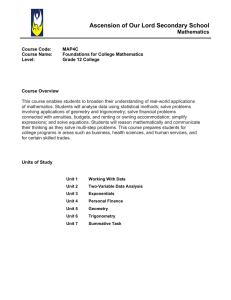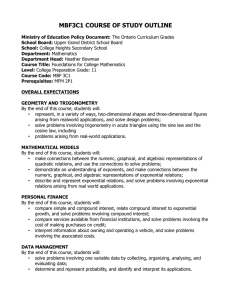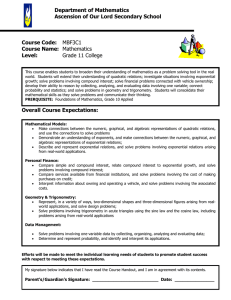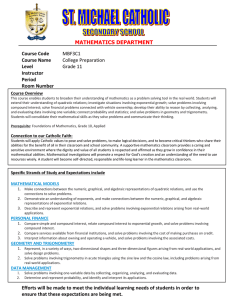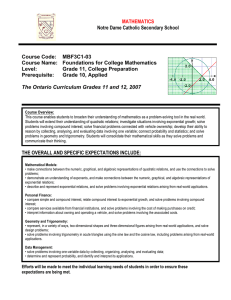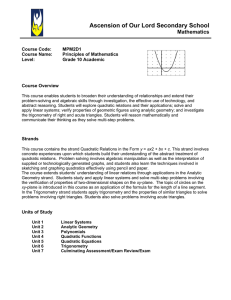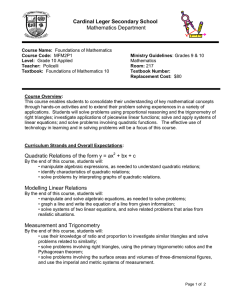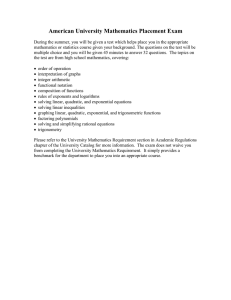Ascension of Our Lord Secondary School Mathematics
advertisement
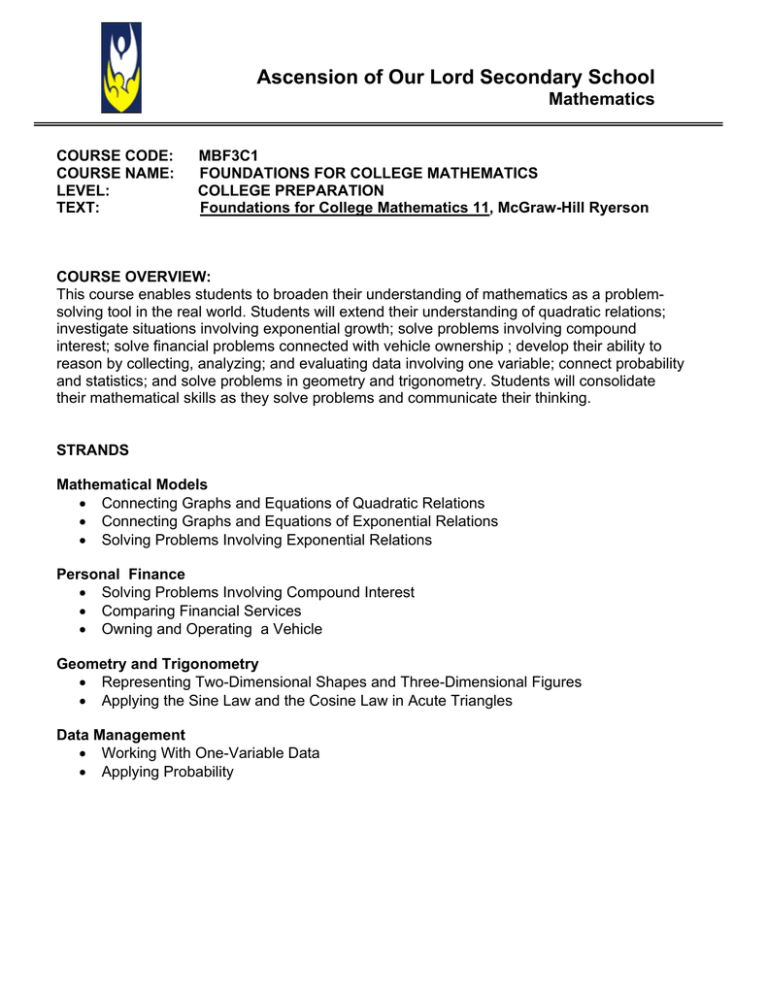
Ascension of Our Lord Secondary School Mathematics COURSE CODE: COURSE NAME: LEVEL: TEXT: MBF3C1 FOUNDATIONS FOR COLLEGE MATHEMATICS COLLEGE PREPARATION Foundations for College Mathematics 11, McGraw-Hill Ryerson COURSE OVERVIEW: This course enables students to broaden their understanding of mathematics as a problemsolving tool in the real world. Students will extend their understanding of quadratic relations; investigate situations involving exponential growth; solve problems involving compound interest; solve financial problems connected with vehicle ownership ; develop their ability to reason by collecting, analyzing; and evaluating data involving one variable; connect probability and statistics; and solve problems in geometry and trigonometry. Students will consolidate their mathematical skills as they solve problems and communicate their thinking. STRANDS Mathematical Models • Connecting Graphs and Equations of Quadratic Relations • Connecting Graphs and Equations of Exponential Relations • Solving Problems Involving Exponential Relations Personal Finance • Solving Problems Involving Compound Interest • Comparing Financial Services • Owning and Operating a Vehicle Geometry and Trigonometry • Representing Two-Dimensional Shapes and Three-Dimensional Figures • Applying the Sine Law and the Cosine Law in Acute Triangles Data Management • Working With One-Variable Data • Applying Probability UNITS OF STUDY Unit 1 Unit 2 Unit 3 Unit 4 Unit 5 Unit 6 Unit 7 Unit 8 Unit 9 Trigonometry Probability One-Variable Statistics Quadratic Relations 1 Quadratic Relations 2 Geometry in Design Exponents Compound Interest Personal Finance Assessment and Evaluation The mark for the course will be based upon on-going or term work (70%) and a final assessment (30%) that includes a final exam (20%) and Culminating Performance Task (10%). The on-going or term work may include written assignments, reports, unit tests, and quizzes. Within the two areas, term work and final assessment, marks will be assigned using the four categories specified in the Ontario Curriculum Grades 9 to 12 Mathematics Education. Knowledge/Understanding 30% • Knowledge of facts, technical terminology, procedures and standards • Understanding of concepts • Understanding of relationships between concepts Thinking 20% • Thinking skills and inquiry design skills • Identifying problems, planning, formulating questions, selecting strategies and resources Communication 20% • Communication of information for different purposes • Use of language, symbols and visuals • Use of various forms of communication Application 30% • Application of skills in familiar contexts and transfer of concepts to new contexts • Application of procedures and technology
